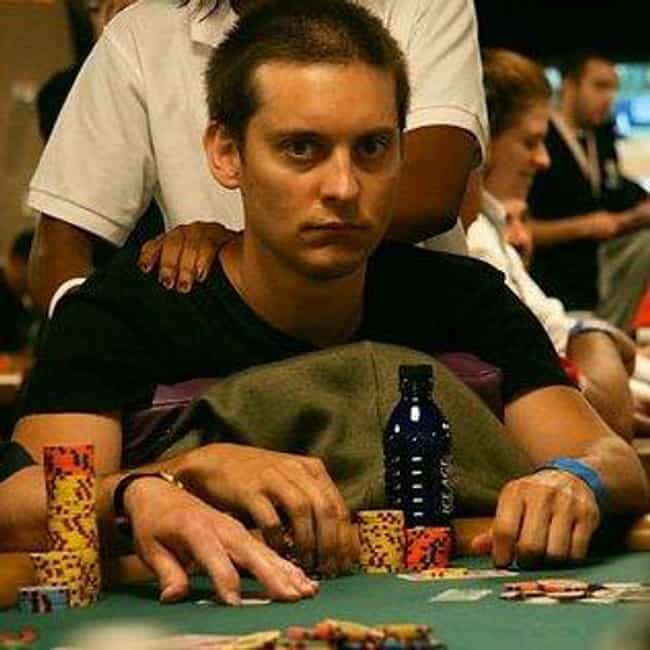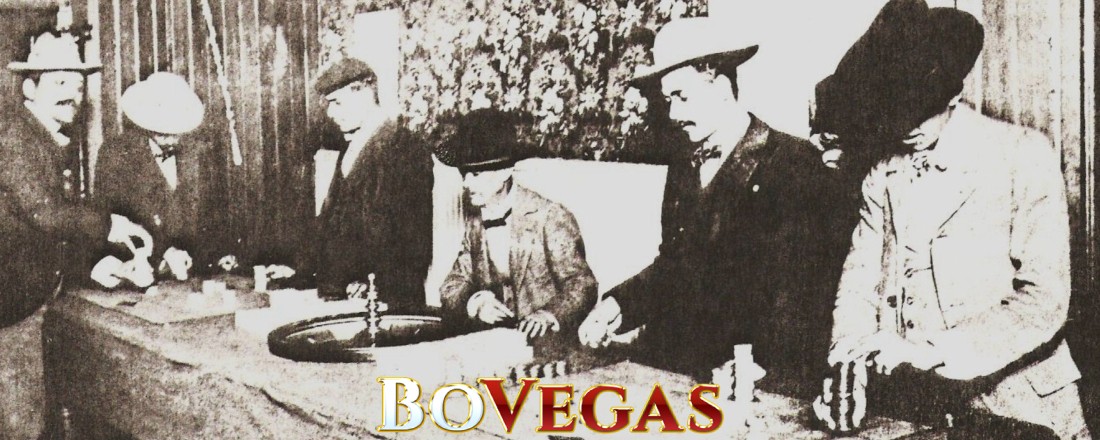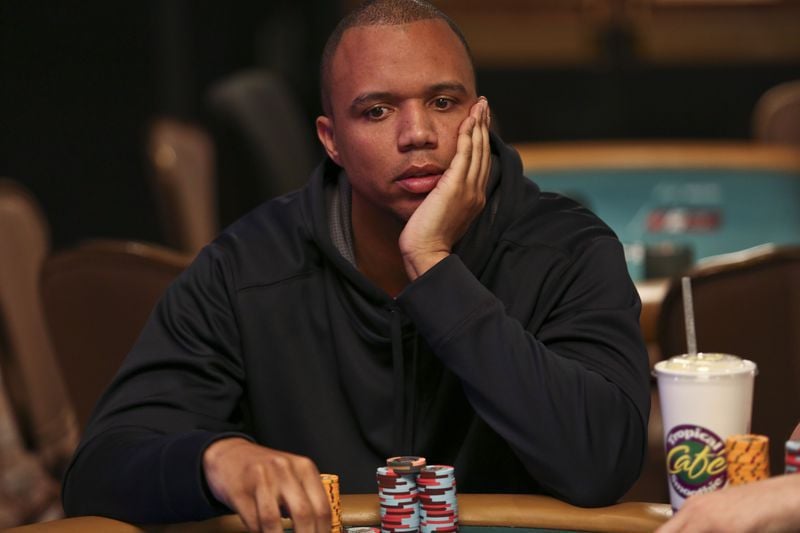While a weekend in Vegas or an evening in the casino on a cruise ship is fine, a visit to the Kentucky Derby for mint juleps and a little horse betting, and even the NCAA college football pool in which I participate this time every year is just fine, some people have serious gambling addictions. It’s serious because it’s a job to them; it’s not just in fun. Some people lose it all betting and gambling; their life savings, their homes, their families – everything. Many believe just the poor or ‘average’ man or woman is prone to gambling addictions, it’s not the case. Even some of the world’s wealthiest men and women, celebrities even, are addicted to gambling, and it costs them more than they are willing to admit. Read on to find out which of your favorite celebs are notorious gamblers that might border on the line of addictive.
Matt Damon
What’s shocking about him is that he’s such a good guy. He’s such a family man. He likes to be with his wife and his daughters, and he likes to stay out of the press. So the fact that he was part of a multi-million dollar gambling ring that played in high-end hotels and private homes of the world’s wealthiest men and women is astounding. What’s even more astounding is that he was sued for it. What’s even more astounding is that this also involved two of his very famous friends, Toby Maguire and Ben Affleck, both of whom are on this list.
Tobey Maguire
Giacomo Girolamo Casanova was born in Venice in 1725 to actress Zanetta Farussi, wife of actor and dancer Gaetano Casanova.Giacomo was the first of six children, being followed by Francesco Giuseppe (1727–1803), Giovanni Battista (1730–1795), Faustina Maddalena (1731–1736), Maria Maddalena Antonia Stella (1732–1800), and Gaetano Alvise (1734–1783). Gambling addiction. More than cocaine, gambling addiction has been seen as a major threat to the financial integrity of boxers. Even the greatest boxers in the world, who make around $30 million in each fight, are not immune to this category. Some of the famous sportspersons who have been caught up in a mix of gambling addiction are Michael. Find the best online casinos in USA with Casino US. You no longer need to go to Las Vegas or Atlantic City to have an amazing gambling experience! Approximately 10 million Americans partake in some form of real money online gambling at a top online casino USA.
Remember him from Spiderman? The soft-spoken, not very outgoing actor that seemed so sweet and innocent? Yes, he’s an addicted gambler. In fact, he was sued back in 2011 when he was caught participating in an illegal poker ring that runs in the multi-millions. His addictions have not been good for him, but he’s been very outspoken about them and his love of playing poker on many occasions.
Shannon Elizabeth
If you don’t recognize her name by itself, you definitely recognize her face from “American Pie”. She is such an avid poker player that there are rumors in Hollywood that she runs an illegal poker ring from her home. It’s not been proven but that’s how much she loves to gamble, and some people would consider that a bit of an issue if it really has caused her to begin an illegal gambling ring.
Charles Barkley
He will forever be remembered as one of the greatest NBA players of all time, and that’s why we love him. However, he’s admitted to the press that he has a gambling addiction. He spoke of how his addiction to betting and gambling has cost him more than $10 million to date. You’d think that would be enough to make him realize it is not a profitable adventure to stick with, but he’s still at it. It’s addictive.
Ray Romano
Everybody does love Raymond, but they do not love that he suffers from a serious gambling addiction. He once opened up and stated that the character he played in “Men of a Certain Age,” who was overcoming a gambling addiction was based on his own personal life struggles. No one would have guessed that he had such a gambling problem, but he does. Well, he did; it’s assumed that he’s overcome his issues or at least worked through the most difficult aspect.
Gladys Knight
She is one of the most famous songstresses in the world, and she was addicted to gambling. When she spoke of her addiction in her autobiography, many people were shocked. She doesn’t seem like the betting type, the gambling type, but she is, and she was. She battled her issues for more than 10 years, and she seeks help for her addictions regularly when temptation strikes.
Ben Affleck
Did you know that aside from the fact that his marriage is over and he’s facing allegations of cheating on soon-to-be ex-wife Jennifer Garner with the nanny, Ben Affleck also lived with a gambling addiction? He went to rehab back in 2001 for his gambling and alcohol addictions, and while we have to assume that he’s all right, we can’t be positive.
Michael Jordan
We have some athletes already on this list; some of them very good athletes that will be remembered in the very distant future. These are men whose names everyone knows and will never forget; yet they battle serious personal demons. Michael Jordan is the most famous NBA star of all time. And he has a gambling addiction. Did you know that when he retired back in the early 90s from the game, it was rumored that his retirement was a result of a serious gambling problem that he had back then? We don’t know what happened to him, how he overcame his issues and how he got back on track, but it’s been said his gambling issue was very serious.
Michael Phelps
He’s an Olympic gold medalist and a phenomenal swimmer, and many people fear that he has a gambling addiction. It’s not a big secret that he spends a great deal of time around a table betting, but rumor has it that his ‘fun’ hobby is now more of a dangerous addiction than anything else. Given his recent issues in the press, too, it might drive him to further lose himself in the process.

Charlie Sheen
You know, I’m going to be very honest here and state that if he has a gambling problem, it’s probably the least of his problems. This particular actor is one of the most crazed actors with some of the biggest personal issues I can recall. If he’s gambling, at least he’s not doing anything even more inappropriate. Not that we condone gambling. His ex-wife Denise Richards once told officials in court documents that Sheen spent – at that time – around $20,000 per week on sports bets.
Photos by Getty Images
10 Common Lies Compulsive Gamblers Tell
If you’re living with a compulsive gambler, you’re already familiar with the never-ending cycle of lies, half-truths, and deliberate distortion of facts. But if you haven’t yet confirmed (but do suspect) that your spouse or partner has a gambling addiction, look carefully at his or her behavior patterns for signs that gambling has become more than just a casual occurrence. Compulsive lying is one of the symptoms of compulsive or pathological gamblers. These gamblers are addicted to gambling, and lying becomes second nature to them. What are some of the common lies compulsive gamblers tell? Read on.
#1: I don’t have a gambling problem.
Anyone who flat-out denies they have a gambling problem, despite evidence to the contrary, is either well on their way to full-blown gambling addiction or is already there. By the time someone is deep into gambling, their behavior becomes consistent and predictable. They will do anything and say anything to get to their primary goal: gambling. That they stretch the truth or tell outright lies is an understatement. Gambling addicts, even after disastrous losses, bankruptcy and financial ruin, legal problems, deteriorating family and personal relationships, will often steadfastly maintain that they don’t have a gambling problem.
Denial is a coping mechanism the compulsive gambler uses to attempt to mask his or her problem. By hoping to keep the truth from coming out, the gambler tries to buy time – time he or she uses to keep on gambling. Thus, there’s self-denial and denial to others. Both types of denial are symptoms of many kinds of addiction, not just gambling addiction. The more a person swears they don’t have a problem – gambling or alcohol or drugs or other addictive behavior – the more likely it is that they do.
Lie #2: I can stop anytime I want.
Confronting a compulsive gambler – calling him or her on the indisputable facts that indicate gambling has become an addictive behavior – will usually generate this kind of lie in response. The gambler cannot admit to you or him/her self that there’s a problem, number one, and, number two, if that doesn’t work, he or she will profess vehemently that stopping is no problem. To prove it, the compulsive gambler may even stay away from the casino, sports book, Internet gaming, or track for a short period of time.
But the lure of cashing in on the big score, snagging the elusive prize is too great. Before long, the compulsive gambler is right back at it. He or she simply cannot resist the temptation. The urge to gamble has become a craving that gnaws incessantly on the consciousness. To ignore the craving is to suffer – and the compulsive gambler only wants the high that comes from gambling.
Lie #3: My gambling doesn’t hurt anyone.
Most addicts believe – some, even sincerely – that their addiction doesn’t hurt anyone. Some even believe their addiction doesn’t even hurt them. It’s just as true with compulsive gambling as addiction to alcohol, illicit drugs, prescription drugs used nonmedically, or other addictive behavior including compulsive sex, overwork, eating disorders, and so on. In fact, gambling addiction, like all addictions, is considered a family disease/disorder. What happens when one individual in the family is addicted impacts all members of the family.
What kinds of harm does this potentially involve? Depending on the length of time the individual has been gambling, and the other addictions the person may also have, the damage may be extensive. Compulsive gamblers often are addicted to alcohol, nicotine, or other harmful substances. This can result in physical deterioration to the addict as well as mental and emotional difficulties: cognitive impairment, difficulty concentrating, loss of memory, explosive rage, extreme mood swings, depression, psychosis, and thoughts of suicide, among others.
Dealing with the effects of gambling addiction, the family suffers right along with the gambler. As gambling takes up more and more of the individual’s life, taking care of family responsibilities becomes less important. Many gamblers lose their home, go bankrupt, get arrested for various crimes (embezzlement, fraud, theft, violence, DUIs, etc.), lose their job or source of income, become violent and abusive to family members, lose their families. As a unit, the family often disintegrates. In fact, without treatment, compulsive gambling is a downward spiral that has, at its final stage, a predictable outcome for the individual: prison, commitment to a mental institution, or death.
Lie #4: I didn’t go gambling.
Meeting the gambler at the door and asking where he or she was is like asking for the inevitable lie: I didn’t go gambling. What else can the compulsive gambler say? Admitting that he or she went gambling is tantamount to admitting loss of control, an inability to set and keep boundaries, and a refusal to keep a promise. If there’s the smell of alcohol and the individual reeks of cigarette smoke or there are other telltale signs of substance use – and you know the person has a history of gambling – hearing the denial will only add fuel to the fire.
You know it’s an outright lie. Confrontation isn’t the way to deal with it. At least, it’s not the solution right now. You need to pick your time for the discussion, and it needs to be when the compulsive gambler is rational, calm, and able to carry on a conversation about the situation in a normal manner.
Lie #5: I have my gambling under control.


If you are the partner or spouse who relies on the compulsive gambler to take care of the bills and other financial responsibilities in the household, you may be tempted to believe this lie. He or she has unrestricted access to the checking and savings accounts, credit cards, lines of credit and other avenues. If, on the other hand, you are the one who controls the purse strings, so to speak, and you constantly give in to the requests for money, you are enabling the compulsive gambler to continue with his or her addictive behavior. You are complicit, codependent, and have just magnified the problem by making it easier for the compulsive gambler to continue.
When someone says they have their gambling under control, they are lying not only to you but also to themselves. A person who only buys a Lotto ticket once in a while will never make this statement. Someone who goes to the track daily, or can’t go by the casino without going in and gambling for hours, maxing out the ATM withdrawals, badgering friends for cash, is very likely to utter these words – and probably more than just a few times. After a while, they just aren’t believable anymore. And the evidence will mount to prove just how big a lie it is.
Lie #6: I didn’t touch our savings.
Desperation sets in the longer the compulsive gambler engages in the addictive behavior. Why is this? While the gambler may initially (in the early stages of gambling behavior) have some wins, the odds are literally stacked against him or her. Sooner or later, the house always wins. It doesn’t matter if the form of gambling is at an actual casino, or sports betting, or Internet gaming, the gambler’s luck eventually runs out.
But the gambler is convinced it’s only a temporary setback. If he or she just keeps gambling, the luck will return. There’s always the big score, the huge payout, just around the corner. All that’s needed is the infusion of cash.
Where to get the cash? Gamblers will rob savings accounts, jockey funds back and forth, hide the passbook or bank statements, and delay the inevitable – all in the futile attempt to keep you from the truth. If you hear your partner or spouse say he or she didn’t touch your savings, you’d better check it out with the bank yourself. Chances are this is just another lie the compulsive gambler tells you.
Lie #7: You won’t believe what happened…
The more deep in debt the compulsive gambler gets – and there’s no way around the fact that this will occur – the more elaborate and exaggerated the lies and stories he or she begins to concoct. There’ll be the robbery that occurred as he or she was depositing money in the bank – and now everything’s gone. Or someone stole his or her wallet and now the credit cards are gone. There may have been an unbelievable investment opportunity and it had a limited window, so he or she had to jump in now or lose the chance… All this and more will come out of the compulsive gambler’s mouth as a way to explain what happened to your money.
If you hear the words: You won’t believe what happened… don’t believe it. No matter how convincing it sounds, it’s likely a lie.
Lie #8: My friend was in trouble and needed money.
This lie is an evergreen one that almost every compulsive gambler uses on more than one occasion. In fact, it’s so common that it’s nearly predictable that you will hear it sooner or later. Certainly there are times when your spouse or partner’s friends may be in trouble. Who doesn’t have such an experience? But when your partner is a compulsive gambler, you have reason to be suspicious. Naturally, you want to give someone you care about the benefit of the doubt, but after falling for this lie time and time again, you’re again only enabling the addictive behavior to continue.
The story about a friend being in trouble and needing money fast also falls into the lie category of you won’t believe what happened. Elaborate, exaggerated, and preposterous stories – all lies – are part and parcel of the compulsive gambler’s repertoire.
Lie #9: You can trust me now.
Trust is a fragile thing. Once you lose trust in another individual, it’s very hard to ever trust that person again. The closer you are to the person, especially if you are married or live with him or her, the more difficult it is to re-establish trust once it’s lost.
Compulsive gamblers need to be able to continue their addictive behavior. In order to do that, they either have to have a complicit or codependent partner, or they have to convince whomever they need to in order to continue to gain access to cash. Friends will eventually see through the lies and refuse to lend any more money to the gambler. After all, this money is rarely, if ever, repaid. They know it’s going for gambling, despite the lies the gambler tells. They gradually avoid the gambler, refusing to take his or her calls, quickly finding an excuse to leave if approached. There’s no trust there now.
But when you live with the compulsive gambler, have a relationship that’s lasted for some period of time, even have children with the gambler – you have a vested interest in maintaining the relationship. You obviously care for (or have cared for) the person. Your heart breaks over what’s been happening as your loved one slides deeper into gambling addiction. Time and time again, you’ve given in and accepted the lies. You’ve told yourself that it’s only a phase, or it’s not that bad, or he or she will outgrow it. Who’s lying to whom now?
Trust is earned through action. Trust is not gained through words. If your partner or spouse says you can trust him or her now, say that it will take time and action – getting treatment, quitting gambling – for you to again be able to place your trust in him/her.
Lie #10: I’ll never gamble again.
The compulsive gambler will tell you what you want to hear – even though it’s a lie. Usually, when you hear the person swear that he or she will never gamble again, it’s after a particularly disastrous loss, arrest, legal entanglement, loss of a job, or other serious consequence.
Instead of letting the lie go unchallenged, you will need to take a stand. Will you continue to put up with this addiction? What are your options? Only you can decide how you will handle your spouse or partner’s gambling addiction. While you certainly can’t force someone else – even one you love dearly – to quit gambling, you can decide how you are going to live your own life. You need to tell this individual how his or her gambling has hurt you and the family, how much you care about the person and want him/her to get help to overcome this situation. You can choose not to involve yourself in his/her behavior. No more lying to friends, family, employer or others about your partner’s gambling. No more excuses. No more looking the other way when the signs and consequences of mounting gambling debt are all around you.
If and when your spouse or partner is ready to admit to the problem and genuinely wants to get treatment to overcome gambling addiction, then you may begin to see a glimmer of hope on the horizon. The words alone shouldn’t convince you. In order for them to have meaning, they need to be backed up by action. Your spouse/partner needs to go into treatment.
You can help by looking into available treatment facilities, either residential treatment facility for gambling addiction or outpatient treatment facilities. Remember that the gambling addict has to want to change in order for change to have a chance. He or she will need professional help in order to overcome his/her addiction. With treatment, not only will the addict learn about the disease of addiction, but he or she will also learn how to avoid triggers and learn and practice coping behaviors to prevent relapse. Part of the gambling addiction treatment process will be to identify the underlying reasons why compulsive gambling is so attractive and to work on overcoming those urges.

If the gambler is adamant about not getting treatment but still maintains he or she will never gamble again, there’s nothing you can do about it – for him or her. But there is something you can do for you. Attend Gam-Anon meetings. These are 12-step fellowship groups whose purpose is to help those family members and friends of gambling addicts cope with the situation. You cannot change the gambler, but you can change how you interact with the gambler and change your behaviors so that you are not enabling the gambling to continue.
Bottom line: When you’ve had enough of the lies, you must make a choice. If you set limits, be sure that you’re willing to enforce them. Don’t make a statement that you’re not able to back up. If you say that you will leave the compulsive gambler if he/she doesn’t get help, you’d better be ready to go through with it. Again, what you do is very much your choice. But you don’t have to try to wade through the emotional minefield on your own. Get help and support from others in your situation.
Famous Addicted Gamblers Movie
Will the lies ever stop? The good news is that gambling addiction is treatable. If your spouse or partner seeks and completes treatment and attends 12-step meetings (such as Gamblers Anonymous) in recovery, with your support and encouragement (and your own Gam-Anon meeting attendance), there’s a very good possibility that compulsive lies – and compulsive gambling – will become a thing of the past.